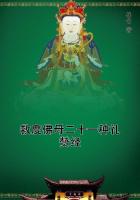They differ in that 'spontaneity' is the wider term. Every result of chance is from what is spontaneous, but not everything that is from what is spontaneous is from chance.
Chance and what results from chance are appropriate to agents that are capable of good fortune and of moral action generally. Therefore necessarily chance is in the sphere of moral actions. This is indicated by the fact that good fortune is thought to be the same, or nearly the same, as happiness, and happiness to be a kind of moral action, since it is well-doing. Hence what is not capable of moral action cannot do anything by chance. Thus an inanimate thing or a lower animal or a child cannot do anything by chance, because it is incapable of deliberate intention; nor can 'good fortune' or 'ill fortune' be ascribed to them, except metaphorically, as Protarchus, for example, said that the stones of which altars are made are fortunate because they are held in honour, while their fellows are trodden under foot. Even these things, however, can in a way be affected by chance, when one who is dealing with them does something to them by chance, but not otherwise.
The spontaneous on the other hand is found both in the lower animals and in many inanimate objects. We say, for example, that the horse came 'spontaneously', because, though his coming saved him, he did not come for the sake of safety. Again, the tripod fell 'of itself', because, though when it fell it stood on its feet so as to serve for a seat, it did not fall for the sake of that.
Hence it is clear that events which (1) belong to the general class of things that may come to pass for the sake of something, (2) do not come to pass for the sake of what actually results, and (3) have an external cause, may be described by the phrase 'from spontaneity'. These 'spontaneous' events are said to be 'from chance' if they have the further characteristics of being the objects of deliberate intention and due to agents capable of that mode of action. This is indicated by the phrase 'in vain', which is used when A which is for the sake of B, does not result in B. For instance, taking a walk is for the sake of evacuation of the bowels; if this does not follow after walking, we say that we have walked 'in vain' and that the walking was 'vain'. This implies that what is naturally the means to an end is 'in vain', when it does not effect the end towards which it was the natural means-for it would be absurd for a man to say that he had bathed in vain because the sun was not eclipsed, since the one was not done with a view to the other. Thus the spontaneous is even according to its derivation the case in which the thing itself happens in vain. The stone that struck the man did not fall for the purpose of striking him; therefore it fell spontaneously, because it might have fallen by the action of an agent and for the purpose of striking. The difference between spontaneity and what results by chance is greatest in things that come to be by nature; for when anything comes to be contrary to nature, we do not say that it came to be by chance, but by spontaneity. Yet strictly this too is different from the spontaneous proper; for the cause of the latter is external, that of the former internal.
We have now explained what chance is and what spontaneity is, and in what they differ from each other. Both belong to the mode of causation 'source of change', for either some natural or some intelligent agent is always the cause; but in this sort of causation the number of possible causes is infinite.
Spontaneity and chance are causes of effects which though they might result from intelligence or nature, have in fact been caused by something incidentally. Now since nothing which is incidental is prior to what is per se, it is clear that no incidental cause can be prior to a cause per se. Spontaneity and chance, therefore, are posterior to intelligence and nature. Hence, however true it may be that the heavens are due to spontaneity, it will still be true that intelligence and nature will be prior causes of this All and of many things in it besides.















